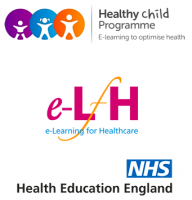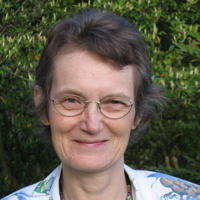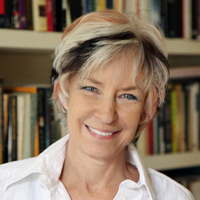The Healthy School Child Programme in Context for Medical Doctors



This session introduces the Healthy School Child e-learning programme, in the context of other related e-learning, and offers some guidelines in how users might gain greatest benefit. It reviews the themes that underlie the learning and, in particular, the biopsychosocial model. It also considers the changed priorities in child health in the 21st century.
The Healthy School Child e-learning is not, in general, designed to meet the needs of those providing specialist care for children who have complex medical problems or who need very specialist school settings.
Learning objectives
By the end of this session you will be able to:
- Recognise the different child health e-learning programmes offered through e-Learning for Healthcare, and where the Healthy School Child Programme fits, in relation to them
- Summarise the '4Ps' biopsychosocial model and its concepts in relation to child health
- Describe the concept of health promotion
- Review 21st century child health priorities
- Recognise the barriers to access due to culture, race, or disability and ways in which they may be minimised
This session uses self assessments that help you check what you have learnt. You do not have to use them and your answers are not seen by anyone else.
Before commencing this session you should have read:
- Department of Health. Healthy Child Programme: From 5 to 19 years old. London: DH, 2020.
Paul Carter is lead editor of the Healthy Schoolchild e-learning curriculum. Before retiring from the NHS in October 2010 he was lead consultant community paediatrician for school health ASD ADHD and immunisation in Walsall where he worked for 17 years. He is coordinating editor of the West Midlands parent-held record and is co-chair of the West Midlands joint paediatric child psychiatry psychopharmacology support group. He continues to provide consultancy to a group of specialist schools for children with severe autism.


Dr. Allister has worked for 18 years (the past 15 full-time) as a partner in a small practice. She is currently serving as Chair of the Primary Child Care Safeguarding Forum. She has been involved since its inception two years ago, and was previously its secretary.
Janice has been a GP trainer for the last 9 years. Her particular interests are in mental health and children’s welfare. Her practice received the Quality Practice Award two years ago.
She is married to Donald, and they have three adult children and one grandson.
Jacqui Stedmon is a clinical psychologist working in paediatrics, where she has learned about the complex interplay between children’s physical health and psychological wellbeing. She practices as a family therapist and is also an Associate Professor at Plymouth University.


Diane DeBell is an Emeritus Professor of Policy in Health & Social Care at Anglia Ruskin University. She is a specialist in child public health policy analysis. Her study of the school-age child in 2007 was a view of the child from the perspective of the family, the school and the community (Public Health Practice & the School Age Population). Her new book Public Health for Children will be published in 2015.
- Anaesthesia Fundamentals | Physiology | Regulation...
- Posted By eIntegrity Healthcare e-Learning
- Posted Date: 2024-11-13
- Location:Online
- This session expands the role of antidiuretic hormone, and discusses other hormonal systems involved in regulating sodium absorption. The concept of 'effective circulating volume', which is central to these systems, is defined.
- Anaesthesia Fundamentals | Physiology | Loop of He...
- Posted By eIntegrity Healthcare e-Learning
- Posted Date: 2024-11-13
- Location:Online
- This session will explain the importance of the interrelated functions of the loop of Henle, distal tubule and collecting tubule in the regulatory functions of the kidney.
- Anaesthesia Fundamentals | Physiology | Tubular Tr...
- Posted By eIntegrity Healthcare e-Learning
- Posted Date: 2024-11-13
- Location:Online
- This session describes the mechanisms behind alteration of tubular fluid composition after filtration has taken place, as well as the detailed functions of the proximal tubule.
- Anaesthesia Fundamentals | Physiology | Renal Morp...
- Posted By eIntegrity Healthcare e-Learning
- Posted Date: 2024-11-13
- Location:Online
- This session introduces you to the overall structure of the functional elements of the kidney and their blood supply, as well as providing an overview of glomerular filtration.
- Anaesthesia Fundamentals | Physiology | Visceral P...
- Posted By eIntegrity Healthcare e-Learning
- Posted Date: 2024-11-12
- Location:Online
- This session describes the clinical features of visceral pain and neuropathic pain, and contrasts these with somatic pain. The neurological pathway is discussed and the principle of central sensitization.







